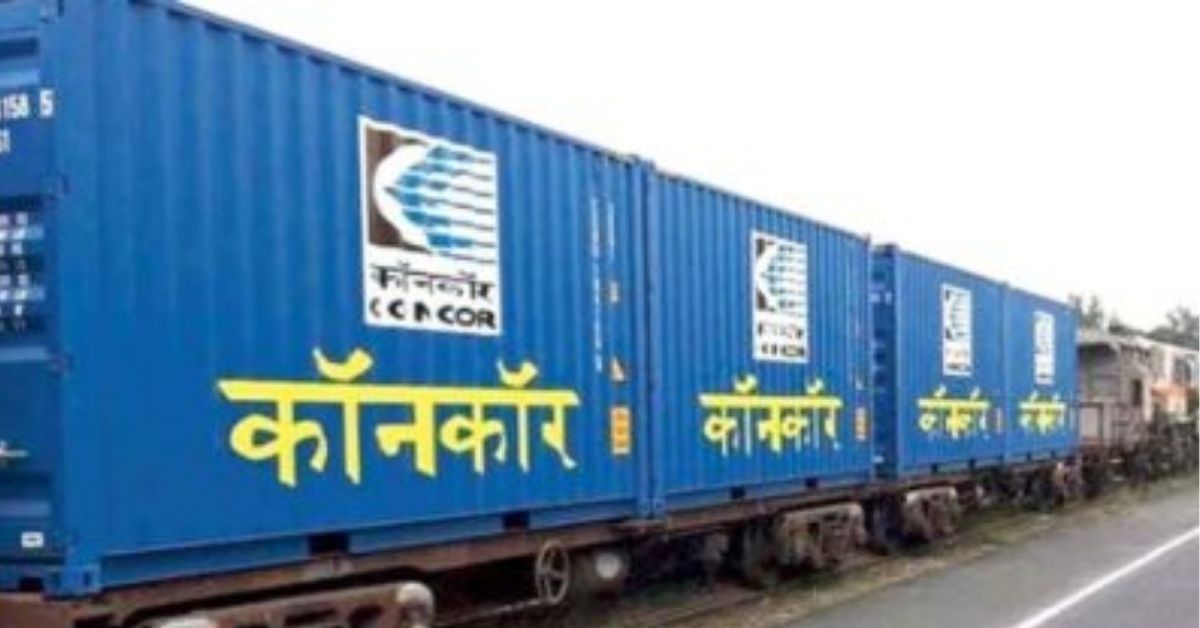The government’s plan to privatise Container Corporation of India Ltd will likely face a dilemma with the strongest contender for the deal – Adani Ports and Special Economic Zone Ltd – turning a tad circumspect from the earlier bullish stance on the acquisition by shifting its focus to deleveraging the balance sheet after a U S based short seller’s report questioned the Adani Group’s financial health and corporate governance practices.
Adani Ports and Special Economic Zone Ltd (APSEZ), the Ahmedabad-based conglomerate’s ports unit and India’s biggest private port operator, said on Tuesday that it will repay and prepay loans worth Rs,5000 crores by March 2024, in a bid to improve net debt to EBITDA ratio and bring it closer to 2.5 times.
EBITDA refers to earnings before interest, taxes, depreciation, and amortization, and is used to assess a company’s operating performance. The company’s net debt to EBITDA ratio currently stands at a notch above 3 times.
“When we look at it from an overall perspective, I think our priority is to deleverage and as guided we would target to bring our leverage down to 2.5 times net debt to EBITDA ratio,” Karan Adani, Chief Executive Officer and Whole Time Director, APSEZ, said in a call with analysts on 7 February after announcing the company’s third quarter financial results.
“As a company, 2.4 to 2.5 times net debt to EBITDA should be good enough to take care of the organic growth,” Karan stated.
“That said, CONCOR is a strategic asset. If we are able to find a way to do the acquisition without increasing our leverage of 2.5 times, we would look at it but otherwise we would… as I said, that’s how we would look at it. But our priority and first order of preference is to deleverage to 2.5 times net debt to EBITDA ratio,” Karan asserted.
The company has a gross debt of Rs45,534 crores as on 31 December 2022, of which Rs43,164 crore is the long term dated debt and the rest is short term undated debt.
Explaining the rationale behind the move to pay debt and improve the firm’s leverage metric, Chief Financial Officer D Muthukumaran said: “Right now, we want to reduce our total debt in the balance sheet of the company. Our main objective is that we are generating cash, we want to use that money to repay the debt after meeting all the growth Capex”.
Muthukumaran said there was a cash build up in the company as the operations threw up a lot of cash and it was built for both acquisitions as well as Capex.
“You saw last year Capex panning out, it was just uncertain at that point in time, but the cash is now being used up for Capex. In addition, at this point in time, there is no clear visibility on CONCOR, which was also a point of potential use (for cash) at that point in time. So, there was a cash build up. Today, there is no cash build up and to demonstrate that point we are now paying down debt with the cash that is generated”.
APSEZ has some Rs3,000 crore of cash parked in fixed deposits.
“We are not committing to 2.5 times net debt to EBITDA for the medium term. What we are telling you is what we can see. We will be dynamic, if there are growth opportunities in the following years, we will pursue them otherwise we will continue to deleverage and it can go down even below 2.5 times, so we will have to be doing what the market offers at that point in time,” Muthukumaran added.
The problems surrounding the Adani Group, triggered by the Hindenburg Research report, comes at a time when the Department of Investment and Public Asset Management (DIPAM) is gearing up to invite expressions of interest for privatising CONCOR after fixing the land leasing issue that had halted the process for more than three years.
CONCOR currently runs 61 inland container depots (ICDs) of which 26 terminals are built on land leased from Indian Railways (IR).
The State-run rail hauler currently pays land lease charges at the rate of 6 percent per annum on the market value of industrial land with annual escalation of 7 percent, for terminals run on Railways land.
In September 2022, the Union Cabinet decided that the land lease charges will be levied at 1.5 percent of the market value of land per annum with annual escalation of 6 percent.
The terminals now operating on Indian Railways land will have to go through a tendering process to avail the benefit of lower lease charges, in which the existing operator will have a so-called right of first refusal if it is not the highest bidder.
In November 2019, the Union Cabinet decided to privatise CONCOR by selling 30.8 per cent of the government’s 54.8 per cent stake in the rail hauler to a private firm along with transfer of management control.






